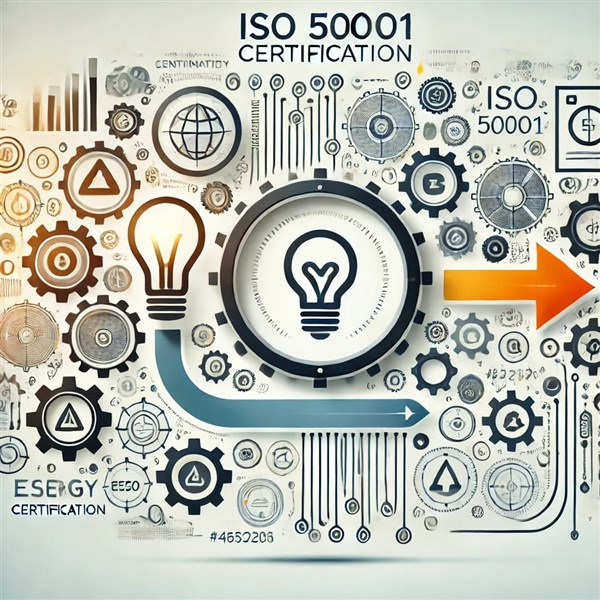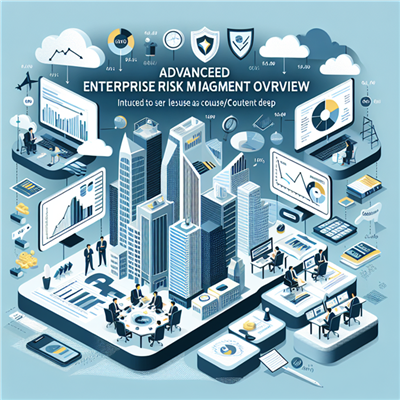
In today's competitive market, businesses are under increasing pressure to improve energy efficiency, reduce costs, and adopt sustainable practices. With growing global awareness of environmental issues and the need to cut energy consumption, companies are seeking solutions that drive operational efficiency while reducing their carbon footprint. One of the most effective ways to achieve this is by obtaining ISO 50001 certification.
The ISO 50001 standard provides a framework for businesses to develop an efficient Energy Management System (EnMS). This system helps organizations manage their energy consumption more effectively, optimize the use of energy resources, and reduce overall costs. But how exactly can ISO 50001 certification improve energy efficiency and reduce costs? Let's dive into the key benefits and reasons why your organization should consider implementing it.
1. A Structured Framework for Energy Management
ISO 50001 certification offers a structured and systematic approach to energy management. It provides organizations with guidelines and best practices to implement energy-saving strategies across all levels. From top management to operational staff, everyone in the company gains a better understanding of energy consumption patterns and the potential areas where improvements can be made.
By using the Plan-Do-Check-Act (PDCA) model, businesses can continually monitor and assess their energy usage, make necessary changes, and drive ongoing improvements. This cycle ensures that energy management becomes an integral part of business operations, fostering a culture of sustainability and efficiency.
2. Reduced Energy Consumption
The core goal of ISO 50001 is to help organizations optimize their energy use. Implementing the standard enables businesses to track and measure energy consumption across different departments, facilities, and processes. Once energy usage is quantified, organizations can identify inefficiencies such as equipment with excessive energy demand, poor insulation, or ineffective operational procedures.
With these insights, companies can implement corrective measures to optimize energy use. For example, upgrading to more energy-efficient equipment, improving insulation, or introducing automation can significantly reduce energy waste. Over time, these improvements result in reduced energy consumption, which directly translates to cost savings.
3. Cost Savings Through Energy Efficiency
Energy costs are a major expense for many businesses, particularly those operating in industries with high energy demands such as manufacturing, transportation, or data centers. ISO 50001 certification helps companies reduce these costs by improving energy efficiency.
By managing energy consumption more effectively, businesses can lower their utility bills, improve their bottom line, and free up resources for other critical investments. Implementing energy-efficient processes not only reduces operational costs but also enhances a company's long-term profitability.
Furthermore, ISO 50001 certification can offer financial incentives. In many countries, governments and local authorities provide tax benefits, rebates, or financial support to companies that adopt certified energy management systems. This can further amplify the cost savings achieved by implementing ISO 50001.
4. Enhanced Corporate Sustainability
Sustainability is becoming an increasingly important factor for consumers, investors, and business partners when choosing who they work with. ISO 50001 certification demonstrates that your company is committed to sustainability by adopting energy-efficient practices and minimizing environmental impact.
Reducing energy consumption and utilizing renewable energy sources can help companies reduce their carbon footprint. Not only does this improve your brand’s reputation, but it also aligns with the global push for more environmentally responsible business operations.
A more sustainable business model can attract new customers, retain employees, and enhance relationships with stakeholders. For many organizations, this represents a competitive advantage in a market that values sustainability and environmental consciousness.
5. Compliance with Regulations and Standards
With the rising importance of sustainability, governments and regulatory bodies worldwide are enforcing stricter environmental regulations. ISO 50001 certification can help businesses stay compliant with local, national, and international energy regulations.
The standard is designed to meet or exceed the energy efficiency requirements in most jurisdictions, helping companies avoid fines and penalties for non-compliance. ISO 50001-certified organizations can demonstrate that they meet the required environmental and energy standards, providing a sense of security and assurance to regulators, customers, and stakeholders alike.
6. Continuous Improvement Through Monitoring and Reporting
One of the critical components of ISO 50001 is continuous improvement. The certification requires organizations to set measurable energy goals, track their progress, and regularly report on energy performance. This enables businesses to constantly monitor their energy efficiency efforts and make data-driven decisions to enhance performance.
By utilizing data and energy analytics, organizations can forecast energy needs, anticipate issues, and implement energy-saving strategies before problems arise. Over time, this proactive approach leads to sustained improvements in energy efficiency and cost reductions.
Additionally, the reporting element of ISO 50001 certification can be used to showcase progress to stakeholders and clients. Organizations can share their achievements in energy efficiency, carbon emissions reductions, and cost savings, further strengthening their reputation in the marketplace.
7. Increased Employee Engagement and Awareness
ISO 50001 certification encourages businesses to involve employees at all levels in the energy management process. From senior leadership to front-line employees, everyone plays a role in driving energy efficiency and sustainability.
By promoting energy awareness and engaging employees in energy-saving initiatives, companies can foster a sense of responsibility and commitment to environmental goals. This collective effort creates a positive workplace culture focused on sustainability, leading to improved energy-saving behaviors, both in the office and beyond.
8. Improved Operational Resilience
ISO 50001 certification doesn’t just focus on reducing energy costs—it also strengthens operational resilience. By optimizing energy use, businesses become less vulnerable to external factors such as fluctuating energy prices or supply chain disruptions. Energy-efficient operations are more adaptable and resilient in the face of uncertainty, helping organizations navigate challenges without compromising productivity.
Conclusion
ISO 50001 certification is a valuable tool for businesses looking to improve energy efficiency, reduce operational costs, and adopt sustainable practices. By implementing an Energy Management System based on ISO 50001, organizations can optimize their energy consumption, reduce waste, and achieve financial savings. In a world increasingly focused on sustainability, ISO 50001 certification also enhances corporate reputation and strengthens relationships with stakeholders. For businesses that prioritize both profitability and environmental responsibility, ISO 50001 certification is an essential step toward long-term success.
Koenig Solutions is a leading IT training company, offering top-notch ISO 50001 training and ENMS certification. With experienced trainers, comprehensive course materials, and flexible learning options, Koenig Solutions ensures you are well-equipped to implement ISO 50001 in your organization.







COMMENT